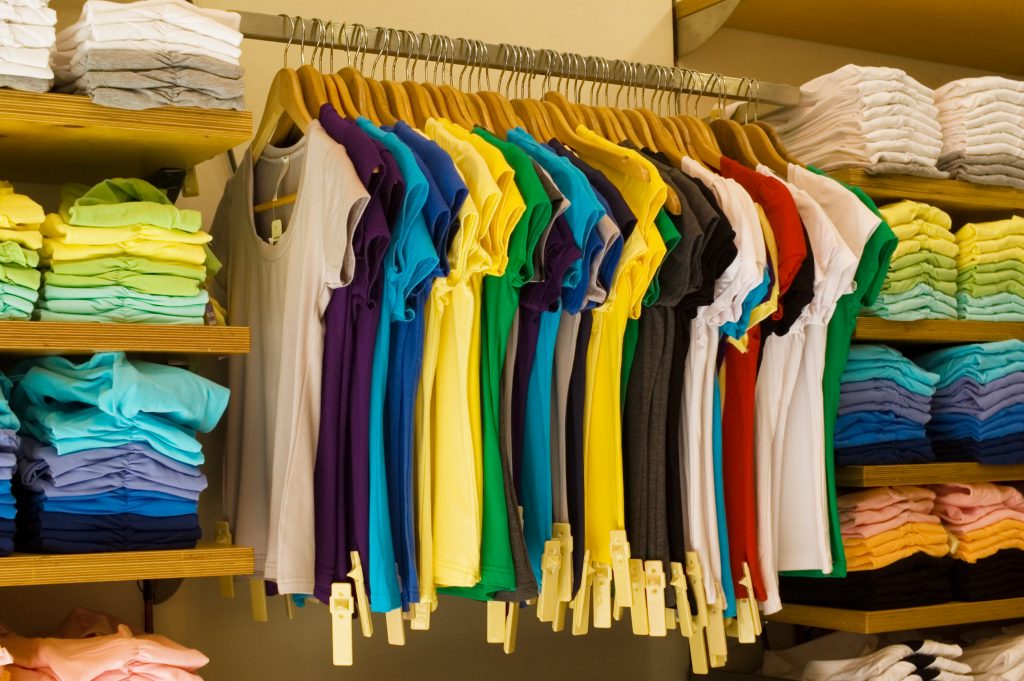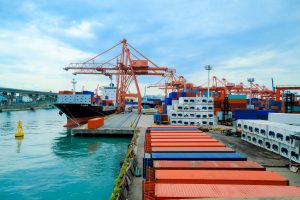Apparel manufacturing is one of the largest industries in Spain. The country has been recognized as an apparel manufacturing hub, with more than 8,600 clothing manufacturing enterprises scattered over the country. In Spain, you’ll find leading world fashion brands such as Zara, MANGO, and Massimo Dutti.
The clothing manufacturing industry in Spain primarily produces men’s, women’s and children’s clothing and accessories. Some of the apparel produced in Spain include athletic wear, sportswear, men’s wear, women’s wear, uniforms & workwear, designer clothing, and babies’ garments, children’s wear, and many other clothing products. Apparel manufacturers in Spain produce nearly all the clothing products you can think of. One of the notable things about apparel manufacturing in Spain is that sustainability is at the core of the process. In fact, sustainability is the main differentiating factor for clothing manufacturers in Spain whose industry is primarily composed of independent manufacturers and fast fashion brands. As a result, industry revenue is driven by end market demand and consumer trends in making discretionary purchases.
In 2019, Spain exported clothing products worth $5.4 billion, making it one of the top 10 clothing exporters in Europe. With the Spanish government offering several incentives to promote the textile and clothing industry, this sector will continuously move forward to reach new heights. As a result, Spain is generally a perfect destination for clothing manufacturers to open production lines. The Clothing Manufacturing industry in Spain is forecast to return to moderate growth over the next five years, driven by industrial and economic recovery in the aftermath of the COVID-19 pandemic. The crisis-hit textile industry has once again started showing signs of revival. The country’s textile industry is coming out of recession. As government regulations placed to slow the spread of the virus are eased, the manufacturing sector is projected to accelerate production, working to fulfil delayed orders. Furthermore, as consumer fears subside, private consumption expenditure on clothing and shoes is forecast to rise, supporting end market demand for industry products.
The Clothing Manufacturing industry in Spain is forecast to return to moderate growth over the next five years, driven by industrial and economic recovery in the aftermath of the COVID-19 pandemic. The crisis-hit textile industry has once again started showing signs of revival. The country’s textile industry is coming out of recession. As government regulations placed to slow the spread of the virus are eased, the manufacturing sector is projected to accelerate production, working to fulfil delayed orders. Furthermore, as consumer fears subside, private consumption expenditure on clothing and shoes is forecast to rise, supporting end market demand for industry products.
Economic rebound in Spain has also become beneficial for the textile industry. Spain’s textile exports, which account for 60 per cent of sector-wide sales, rose by seven per cent last year. The focus on international sales adopted by major fashion retailers has also pushed smaller firms to modernize and shift their focus to activities with higher added value.
Many textile companies in the Spain textile industry have been unable to develop and adapt to changing textile industry technologies and new practices, limiting their capacity to compete with other big players. One of the emerging trends in the clothing manufacturing sector is the use of sewbots to bring down costs, increase efficiency, and speed up the process. Most companies have digitized their operations using big data analytics, worker’s augmentation, and autonomous systems.Fast fashion has been able to help fight this by providing low-risk possibilities for the Spanish textile and garment industry to develop and incorporate new manufacturing and design components. Due to its low price and compliance to current fashion and textile trends, fashion industry is popular with a large segment of Spain’s textile business sector; it’s also inexpensive to produce and has a short lifespan, customers frequently repurchase products or continue to purchase latest textiles in order to catch pace with constantly developing Spanish textile trends. Spain’s textile market is also profiting from the country’s economic recovery and the exit of less efficient textile companies from the market. Almost 4,000 textile companies are still operating in Spain, and this number is likely to remain consistent for at least the next year. These surviving enterprises place a strong emphasis on exports, which has aided in the developing of new business prospects and markets for Spain’s textiles and fabric. Spain is already exporting raw fabric to Morocco, which accounts for the majority of the country’s textile exports, a factor that is likely to bolster the textile industry’s recovery in the near future.
Spain’s textile market is also profiting from the country’s economic recovery and the exit of less efficient textile companies from the market. Almost 4,000 textile companies are still operating in Spain, and this number is likely to remain consistent for at least the next year. These surviving enterprises place a strong emphasis on exports, which has aided in the developing of new business prospects and markets for Spain’s textiles and fabric. Spain is already exporting raw fabric to Morocco, which accounts for the majority of the country’s textile exports, a factor that is likely to bolster the textile industry’s recovery in the near future.



